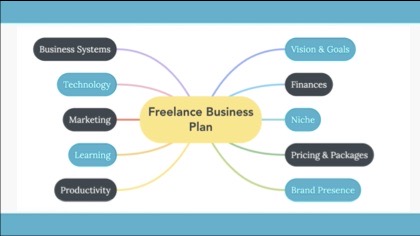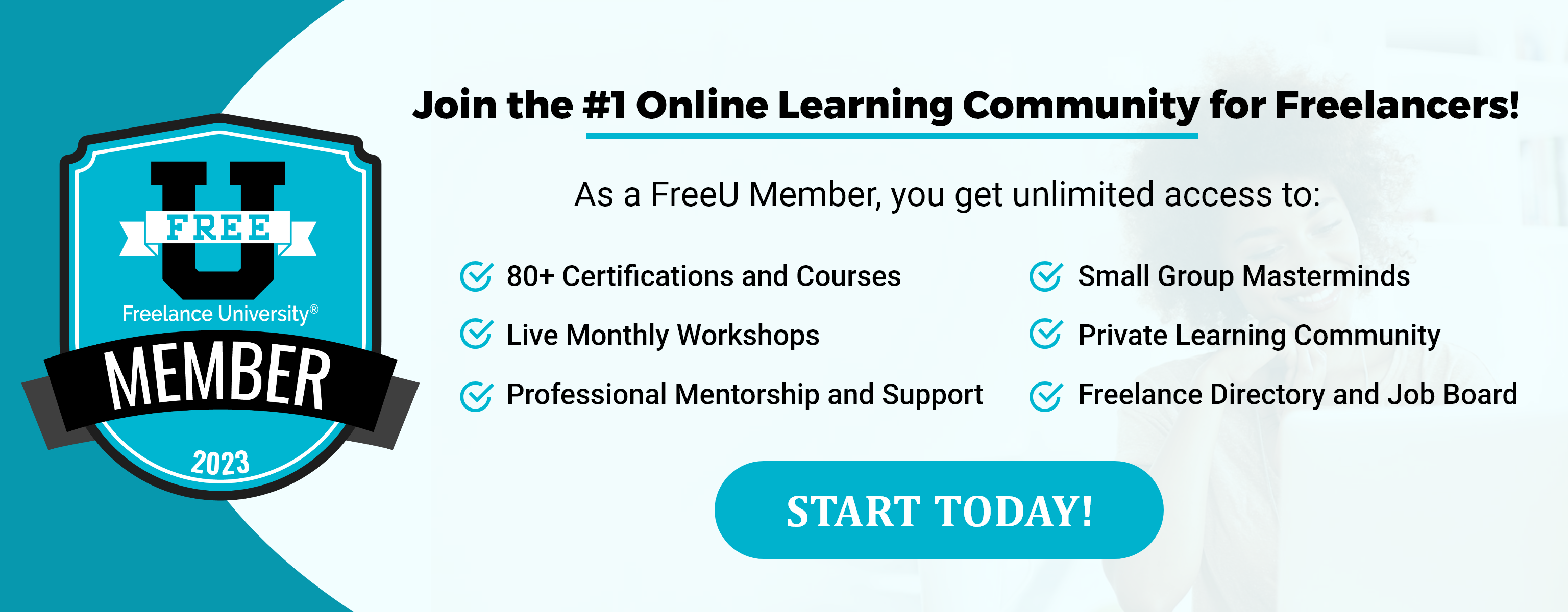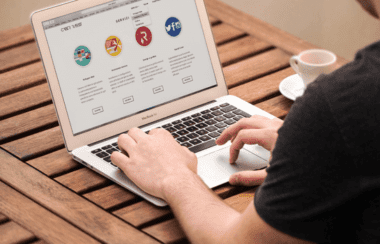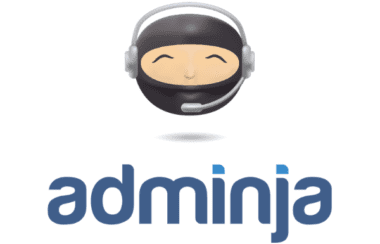The Ultimate 2023 Freelance Business Plan
By Jena Kroeker

Creating a freelance business plan for 2023 is like planning a trip with an uncertain itinerary. Even if you know where you want to go, the journey could be full of twists and turns.
But you may remember the encouragement we offered in last year’s blog post titled “How to Prepare Your Business for Your Best Year Yet”:
“While we can’t predict exactly what 2022 will be like, the future is bright for freelancers. You can take comfort in the fact you’ve made a great choice of career.”
And the same is true now. Although the world is full of economic challenges and uncertainty, we’re part of a growing freelance and virtual assistant industry that’s demonstrated resilience and adaptability. For example, in his article, “The Freelance Revolution Is Ahead Of Schedule,” Jon Younger shares the following statistics:
“40% of full-time employees in the US have a side-gig. 90% plus of corporate leaders in a recent global survey said they utilize freelancers and say they will increase their reliance. During the current recessionary period, almost 80% of employers say they are increasing their use of freelancers as they suspend full-time hires.”
So, let’s face 2023 with confidence and optimism!
Creating a Freelance Business Plan
In our Business Planning Success workshop, Freelance University co-founder and instructor Craig Cannings unpacked a “10-Step Freelance Business Plan.”

These 10 steps are all part of the journey you’ll be taking next year. And as you prepare for this winding road, don’t forget you’re armed with experience and potential. However the year unfolds, you can keep adapting and building skills to help you navigate it.
In particular, you’ll benefit from developing your soft skills. As Craig explained in a recent Facebook Friday event on the “Top Soft Skills for 2023,” both technical (hard) skills and non-technical (soft) skills contribute to your long-term success.
While the hard skills help you perform marketing and service-specific tasks, the soft skills enhance your client relationships and your business planning. And, as you’ll see below, they help you create the ultimate freelance business plan.
Are you ready? Okay, imagine you’re going on a trip and need to organize five important elements before departing.
Preparing for the Year’s Journey
1. Your Destination
Although you’re traveling through uncharted territory, you can create a map of where you want to go. In other words, determining your destination involves defining the vision and goals for your business.
As Craig Cannings explains in the workshop above, it’s important to start with a “Big Why Statement”:
“I would like to build a Freelance Business so that I can _____________________.”
Next, spark your imagination by envisioning what you’d like to accomplish, and then turn those visions into specific goals to reach at specific times in 2023.
For example, in her article, “Steal My Freelance Writing Business Plan,” Elna Cain recommends deciding what you’d like to accomplish by the end of December. Then, break your goals down into quarters (groupings of three months at a time), starting in January. She says, “Knowing what you want to accomplish during a three-month period will help you determine what you should be working on each month!”
Important soft skills for this step:
• Creativity to imagine the possibilities for you and your business
• Adaptability to changing circumstances
According to Craig, “The willingness to change is a superpower for any virtual assistant or freelancer.” As times are changing, you may need to adapt to new circumstances and adjust your goals along the way.
2. Your Budget
Since all journeys require funding, financial goals are a crucial part of your freelance business plan. To plan your budget, start by asking yourself three questions:
• What are your desired annual/monthly revenues?
• What is the specific monthly income you need to make ASAP?
• What are your current (or potential) monthly business expenses?
In this time of economic uncertainty and rising prices, you may need to adjust your budget at certain intervals. But for now, outline your one-time and recurring expenses, including fixed costs and monthly costs.
Decide when you’ll revisit your budget to check whether the numbers are still lining up. For instance, you could examine it at the beginning of each quarter when you reevaluate your overall business goals.
Important soft skills for this step:
• Attention to detail as you calculate your income and expenses
• Adaptability in the face of a changing economy
3. Your Transportation
Instead of planes, trains, and automobiles, your freelance business plan relies on your niche and pricing to move it forward. These two elements are the vehicles that help transport your business toward fulfillment and sustainability. Fortunately, you can adjust them to suit your preferences and increase your speed as you navigate the road ahead.
Specifically, it’s important to plan both your audience niche (Who will you serve?) and your service niche (What will you offer?). For example, maybe you’ve decided to serve fitness professionals by offering them social media services.
Once you’ve determined your niche, plan your pricing by asking yourself these three questions:
• Are you clear on how to price your services and packages?
• Are you comfortable with your current rates or will you consider a price increase for the new year?
• Any service packages to add or remove?
To ensure your pricing transports your business effectively, try to avoid going too high or too low.
An article titled “7 Freelancers Mistakes to Avoid” warns,
“Think about the adage: ‘Pay peanuts, get monkeys’. Yes, clients generally are on the lookout for affordable, good-value products and services, but this doesn’t mean that you should undervalue what you can provide.
“Particularly, very low fees might make a potential client feel suspicious of you. They might wonder whether you do, in fact, have the right experience or expertise, and whether you will be able to return a timely and professional project.”
It also recommends including sick pay, maternity or paternity leave, healthcare benefits, and vacation allowance in your fees, amounts that are normally included in an employee salary.
Important soft skills for this step:
• Empathy toward your clients’ circumstances
• Clear communication with clients
• Exceptional service
• Proactivity to anticipate necessary changes
• Collaboration/teamwork skills to enhance your services
4. Your Accommodations
Now consider the online accommodations that house your business presence and make it visible to your target audience of potential clients. For example, imagine you have a main house (your website) and a number of mobile homes or motorhome RVs (your social media, freelance profiles, digital content, and email).
As you create your freelance business plan, ask yourself the following questions about each accommodation:
• Website: What are your plans to create or optimize your website?
• Social media: How can you optimize your social media presence?
• Freelance profiles: Will you set up profiles in other platforms (e.g. FreeU, Upwork)?
• Digital content: What content will you create to attract your audience (e.g. blog, podcast, YouTube video)?
• Email: What lead magnets will you create to build your email list?
Important soft skills for this step:
• Creativity as you think of new ideas to enhance your business presence
• Proactivity to anticipate necessary changes
5. Your Supplies and Resources
The remaining parts of your freelance business plan are essential supplies and resources that will power your journey through 2023. Here’s what you need to include in your plan:
• Business systems (e.g. email inbox system, bookkeeping system, etc.)
• Technology (e.g. web platform and host, project management tool, etc.)
• Marketing (e.g. plans to reach your audience via referral marketing, content marketing, and other channels)
• Learning plan (e.g. courses and learning time so you can develop necessary skills heading into the new year)
• Productivity (e.g. efficient use of time so you can accomplish priority tasks and track your progress)
Forgetting some of these supplies can cause inconvenience or discomfort. For instance, project management is cumbersome if you lack the proper technology to streamline it. But forgetting other elements can threaten to derail your business. Consider this advice from the article above regarding productivity and time management:
“Think about it: when you were working for a company, you probably had days when your workload was very low, which meant you might have done nothing, or very little, for a whole day.
“Still, at the end of the month, you would get your salary and all your benefits, and that would likely remain unchanged. However, things are different as a freelancer. Generally speaking, if a freelancer doesn’t work, they don’t earn.”
Therefore, make sure you pack all the above supplies and resources as you get ready to travel through 2023.
Important soft skills for this step:
• Project management so you can manage your plan and resources
• Organization so you can balance your personal and professional life by blocking out time for clients, marketing, and learning
Final Thoughts and Encouragement
How do you feel now? More equipped to face the new year with confidence and optimism? As you can see, the ultimate freelance business plan for 2023 includes space to move and adapt to the road ahead.
As the article above says when describing a freelance writer’s business plan,
“Nothing is set in stone, especially when it comes to business writing and coming up with a plan. You should be prepared to make changes as necessary to help you reach your goals.”
So, pack your suitcase, head out the door, and look forward to a year of learning and growing!
And now we’d love to hear from you. How’s your freelance business planning going? Do certain parts of your plan need special attention or further development? Please share your thoughts in the comments below.









































































































